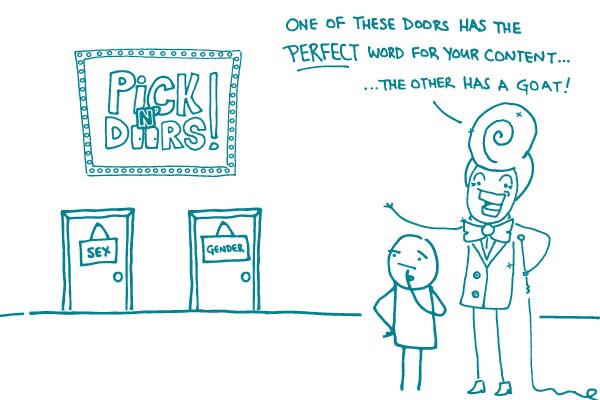
A common question we get from clients and readers alike is, “Should I use ‘sex’ or ‘gender’ in my health information?” Never fear, dear readers, we’re here to set the record straight!
Sex is biological. It’s about your chromosomes, your anatomy, and your hormones. In terms of sex, most people are male or female.
Gender is social. It’s how your identity relates to society’s ideas of what it means to be a man or a woman.
While it may be tempting to use these terms interchangeably, it’s not accurate. It’s not always as simple as male = man and female = woman. Some people are intersex, meaning their physical sex characteristics aren’t typically male or female. And for transgender, non-binary, and agender people, their gender doesn’t “match” the sex they were assigned at birth.
For health communicators, it’s important to be clear about what we mean. When you find yourself about to write “sex” or “gender,” take a moment to think about what you’re really trying to say. (And if you’re working on a form or survey, think about whether you need to ask about gender at all.)
For example, if you’re talking about prenatal testing, you’re definitely looking at the baby’s sex. That 20-week bundle of joy has only just started to develop a nose — it has no idea what its gender is.
On the other hand, if you’re talking about which groups face the highest rates of intimate partner violence, that’s gender. It’s about how people are perceived and treated as men or women, not about their physical characteristics.
The bottom line: Resist the temptation to use “sex” and “gender” interchangeably — think through what you mean first.
Browse recent posts